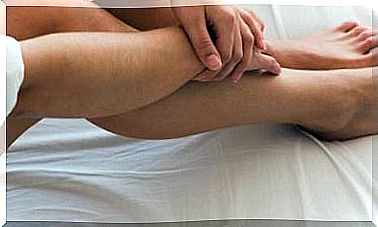9 Keys To Eating Well Without Obsessing
Is it difficult to eat properly? Not at the beginning. It is enough to have a minimum of adequate information on nutrition topics and to apply common sense. This is what this “philosophical” diet proposes.

- 1. Approach the diet with philosophy
- 2. Follow the rules of good nutrition
- 3. Prioritize fruits and vegetables
- 4. Adapt the diet to our needs
- 5. Take into account caloric expenditure
- 6. Enjoy food
- 7. Adopt a flexible attitude
- 8. Try to keep your balance
- 9. Eat mindfully
- To know more
Eating is a basic need. A mixture of instinct and learning allows the child to get into the habit of eating and drinking.
It is the parents and close relatives who give the first guidelines from the beginning .
And it is clear that cultural factors are very important in the consolidation of certain eating habits.
Therefore, eating is something natural and everyday that should not be too much of a complication.
Without forgetting that being able to eat every day is already a great luck, not within the reach of all human beings.
Eating is necessary first to sustain life and also to make life as healthy as possible.
Within the framework of the habits of the society in which we live, there are more or less healthy customs, even certain religious implications : the pig, for example, is common in the kitchen of Christian countries and not in Islamic or Jewish environments.
Added to this are your own tastes or the fact that certain foods feel better than others to a person.
The result of these factors mentioned, what you ate at home as a child and what has been incorporated culturally throughout life, determines what type of food is bought in the store or supermarket and the dishes that are they prepare in the kitchen.
But along with the nutritional guidelines that tradition and custom have been consolidating over time (typical foods of the region, popular recipes …), without a doubt, the opinion of doctors regarding food must be taken into account. they are related to health and disease.
Indeed, all cultures have had certain dietary norms of a hygienic or preventive type, together with criteria for knowing what to eat in the case of suffering from a specific health problem.
1. Approach the diet with philosophy
The word diet, so in vogue, derives from the Greek dieti , which means “way of life.”
That is, it refers to how to live, what to do or avoid to lead a healthy life; meaning a global, psychophysical hygiene that encompasses both the body and the soul, and giving a place of preference to food.
Let us remember in this sense the “philosophical diet” that was advocated in ancient times by the Pythagoreans and Stoics, based on a certain frugality linked to contact with nature.
But since food is essential in all hygiene of life, the word dietetics has remained almost as a synonym of healthy eating, either to prevent or to improve certain diseases (cardiovascular, degenerative, etc.). Although “dieting” is often understood as a way to lose weight through a low calorie diet.
The science of nutrition, which guides the search for a healthier diet, is mainly based on the progress that has taken place in recent centuries in food chemistry (composition, richness in immediate principles) and physiology ( how these components are metabolized).
All the data that currently allow us to propose a better nutritional option are based on something however paradoxical: on the one hand, they are experimentally proven facts, but they do not completely solve the mysteries involved in a topic as broad as human nutrition. That is, not everything is measurable and not all truth can be generalized.
How do you explain, for example, that certain populations in Asia lead normal lives and often physically hard jobs with a diet theoretically deficient in protein ?
Is it not also proven that an exclusive nutrition with theoretically impeccable food from an industrial point of view becomes harmful to health?
It should not be overlooked either that the scientific method itself implies that theories in any field are quickly replaced by more recent ones that sometimes contradict aspects of the previous ones.
The empiricism based on common sense led many promoters of healthy eating to advocate the consumption of the fruit, without the need for vitamins to be discovered or synthesized in the laboratory, as happened centuries later.
But it is also true that science sometimes demonstrates the importance of the apparently useless ; for example, the value of the phytonutrients present in vegetables (some are simply pigments, such as flavonoids), components that have no nutritional value per se but that protect health (especially against diseases such as cancer).
Not all truth can be generalized. Scientific data are essential and valuable but must be accompanied by other complementary criteria.
2. Follow the rules of good nutrition
A natural and balanced diet should give preference to foods that are little industrially processed and include a percentage of raw vegetables (fruits and salads) every day , as well as avoid excess fried and other foods cooked at high temperatures.
It is advisable to eat complex carbohydrates (cereals, legumes), proteins and less fat (preferring dry fruits, without abusing them, and vegetable oils from the first cold pressure).
It is known that the increase in cholesterol in the blood affects cardiovascular health and inhibits certain immune functions. For this reason, it is advisable to avoid the consumption of fats of animal origin and eat fresh plant foods daily, rich in vitamins, minerals and phytochemical complexes that prevent diseases.
Water is essential for the body to adequately carry out both metabolic reactions and cellular respiration. A good habit is to drink at least one liter a day.
The pyramid of healthy eating inspired by the Mediterranean diet, which is already generally recommended in many countries, including the United States, advises consuming daily:
- 4-6 servings of the set that form cereals (bread, rice, pasta) and starches (potato).
- 5 servings from the group of fruit, vegetables and greens (with 3-6 tablespoons of oil).
- 2 servings from the dried fruit group .
- Occasional consumption, not daily and in moderation: sweets, soft drinks, fats …
3. Prioritize fruits and vegetables
The abstinence from eating meat has had illustrious defenders throughout history. Often for religious reasons : in Judaism and Islam it is taboo to eat certain meats; in Hinduism or Buddhism, taking the life of a living being is avoided.
But the rise of vegetarianism took place with the naturist currents that from the 19th century saw in a diet free of meat and rich in fruits and vegetables as a way to counteract the effects of the unhealthy life of the big cities after the industrial revolution.
It was necessary to return as much as possible to nature and adopt a diet in which plant foods predominate.
There is in that current a utopian component ; however, he has seen many of his insights scientifically confirmed.
No one doubts today the benefits of plant foods, nor that their vitamins and minerals have numerous properties against the prevention of various diseases.
Anyone who wants to follow a healthy diet must include, to the extent that he or she deems it appropriate, a vegetarian component : it improves the purification of the body and provides abundant antioxidants that help longevity.
If it is the ethical aspect of vegetarianism that prevails, it is equally proven that you can live without sacrificing the lives of animals.
4. Adapt the diet to our needs
It is clear that one of the main differentiating factors regarding food is the age of the person.
Feeding a growing baby or child cannot be the same as feeding an adult.
The elderly require a diet rich in vitamins and minerals, the lack of which could lead to deterioration, especially in the endocrine and nervous systems.
Neither does a man feed himself in the same way as a woman ; the first, with greater muscle mass, has greater protein needs.
They, for their part, must monitor an adequate intake of minerals such as iron due to menstrual losses, not to mention special dietary care in pregnancy or lactation period.
The discoveries in dietary matters indicate that each person is different in their way of assimilating food.
Come into play an endogenous factor (heredity) and other exogenous (the environment in which we live).
There are several metabolic types depending on the constitution (predominance of the sympathetic or parasympathetic system, oxidation or reduction, etc.).
In this sense, nutrigenomics studies the ideal diet for each person through the genetic code.
5. Take into account caloric expenditure
The type of work that is done also influences the diet.
Those who do it in a more sedentary way , for example in an office, do not need as much caloric or protein intake as those who perform tasks that require muscular effort (bricklayers, farmers, athletes …).
Nor do we eat the same throughout the year. In winter we consume more fatty foods and in summer, more fruits and liquids. Without this meaning that in the cold season it is not necessary to include plant foods.
In this same sense, the way of eating varies depending on where on the planet you live. The adaptation to the medium is very important and often holds surprises scientists.
Thus, for a long time it was believed that the type of diet of the Eskimos, very rich in fatty fish, was harmful to the cardiovascular system. Until it was discovered that omega-3 fatty acids in cold-water fish tend to lower cholesterol levels.
Obviously, if someone suffers from a health problem, it is advisable that their diet follows as much as possible the medical advice aimed at improving that particular problem. But you can also choose certain variations that do not contradict the essential and that the person prefers.
6. Enjoy food
It is clear that if from childhood we let ourselves be carried away by cravings, eating would be unhealthy.
A good diet cannot be based on pizzas with cola drinks or cream and chocolate cakes, no matter how appetizing they may be.
Now, we would fall into another error if we thought that a healthy diet must necessarily be based on the sacrifice of taste.
Eating with pleasure is essential to assimilate food well, on the one hand, and, at the same time, to psychologically compensate for certain troubles in life.
Hippocrates already said that eating a food that is theoretically unhealthy feels better than taking something healthy that does not please.
The instinct also plays an important asset when it comes to maintaining a healthy diet.
It is not about the mere whim at a given moment, but that sometimes the body asks for something apparently strange because it really needs at that moment some nutritional component that that food contains.
The festive is also something that can modify the diet at any given time, often in the sense of excess calories. But it does not matter.
As I usually tell patients who want to lose weight: what makes you fat is not having a piece of cake on Sunday, but doing it the rest of the week. The exception does not count in terms of diet, but what is commonly eaten does.
Today so much information is available that when it comes to following a balanced diet, doubts often arise as to whether it is being done well.
What’s more, if we strictly follow the various theories, we will end up not being able to eat hardly anything, as they often contradict each other.
7. Adopt a flexible attitude
Therefore, it is best to avoid rigidity, which does not mean lacking judgment.
You cannot put the same emphasis on everything, so you have to choose the factors that best suit our nature and our way of thinking.
If someone wants to be vegan, especially for ethical reasons, it is normal that they do not want to make exceptions. But even in this case, if someone kindly offers you something to eat – ignoring your vegetarian tendency – it may be more appropriate to accept it and not consider it offensive.
In some way, the ideal diet promoted by the health authorities is the basis on which each one has to structure their food criteria, as it is based on scientific data and seeks balance while avoiding deficiencies.
But at the same time , personal nuances can be found, depending on the way of understanding life and personal circumstances.
Adapting according to time and place is a test of common sense, and exceptions prove the rule, as they say.
The “flexible diet” should not be seen as a new theory with its fixed rules, but rather as the margin of mobility necessary so that good ideas do not become rigid.
There should be a general dietary orientation that gives the guideline to follow, but with possible variations at a given moment that do not contradict the basic trend of a healthy and balanced diet.
8. Try to keep your balance
There is a risk of being too strict following dietary guidelines but food must always be observed in the context of diet, and this in lifestyle.
The desire to eat a healthy diet is certainly beneficial. But some people can become obsessed and make food the center of their lives.
The term “orthorexia” indicates an eating disorder – not unrelated to bulimia or anorexia nervosa – characterized by addiction to healthy food.
In these people there is a true obsession with the quality or purity of food, so eating something that does not meet these requirements at any given time is lived with great remorse.
Over time, this attitude leads to a deterioration of social relationships and sometimes to a state of malnutrition.
It is clear that these cases are extreme, and that they respond to an obsessive neurosis, centered in this case on eating.
To avoid falling into radicalism, it is convenient to adopt an equidistant point of view both from the extreme of considering that the type of food that is eaten does not matter at all and, on the contrary, of considering that they matter exaggeratedly.
Sometimes it is said that “we are what we eat”, which is true in a certain sense: our body takes energy and renews itself through food.
But, at the same time, we are much more than what we eat : there are levels of our being that are not affected by the type of diet that is followed. And even the body has mechanisms that allow it to adapt to various ways of eating.
As in everything, you have to find a balance. If you usually eat healthy, it is not serious to make exceptions. It may be preferable to make a concession than to decline an offer.
9. Eat mindfully
When it comes to food, it is usually about the quality of what you eat. But the importance of how and where it is done is often forgotten . Here are some good tips:
- Calmly. No matter how carefully selected and prepared foods are, eating them in a hurry or in a noisy environment decreases or interferes with the potential quality of such foods. It does not matter if they are biological if they will not be able to digest well.
- Make a parenthesis. At lunchtime it is advisable to take a break from work or social activities. It may be a good idea, in this sense, to go to the bathroom first and wash your face and hands.
- Prepare to eat. Better to sit at the table in a quiet place and prepare to eat: that is, calming the mind, taking a few deep breaths, looking at and smelling the food before eating it …
- Eat slow. It is good to eat slowly and chew well to suitably salute (the first digestion of carbohydrates occurs in the mouth), so that the stomach does not have to make an extra effort afterwards which, if repeated, can lead to bad digestions (dyspepsia) or even gastritis with a sensation of heartburn, burning, belching, etc. You have to learn to taste to enjoy the pleasure of eating in all its dimensions. Little breaks help.
- Nice conversation. It is not necessary to be silent, although sometimes it can be pleasant to do so if you are alone or there is enough confidence with the other diners. But it does matter to avoid conversations about unpleasant problems or topics. It is not uncommon for this to happen and for the lunchtime encounter to lead to an argument. A carefree chat and in a cozy environment help to digest.
- Enjoy the food. The best attitude is to be calm and enjoy what is being done at that moment, which is nothing other than eating.
To know more
- Do we know how to eat? Andrew Weil; Ed Urano
- Nutrition for Living, Lisa Park and D. Deen; Ed. Pearson
- Food and life, F. Grande Covián; Ed. Debate









